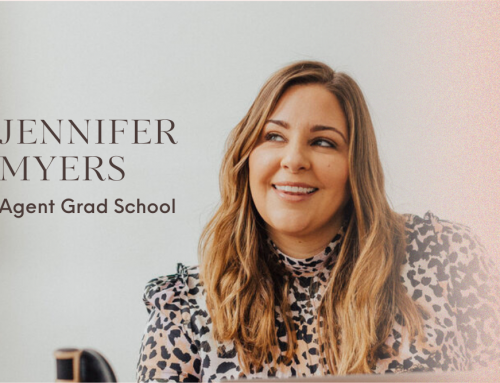One cool strategy that has been discussed lately is the concept of becoming a “neighborhood expert”—learning everything you can about an area (especially things that can’t be easily found online) and then branding yourself as the go-to resource for that location.
The first time I heard that term, the creative gears in my head immediately starting turning. What a fantastic marketing and content strategy! There are so many things to learn and write about—best restaurants in the area, which neighborhoods are the most walkable, the styles of the homes in the area, which neighborhoods are best for families with young children—
And then I had to slam on the brakes. Because it turns out there are quite a few things a real estate agent is not allowed to say or write.
I knew school ratings were a big no-no, but I had no idea that you couldn’t tell a client that one neighborhood is “great for kids!”
The Fair Housing Act states that real estate agents may not provide information that could even be perceived as discriminating against a particular race, color, religion, sex, national origin, disability, or familial status (kids, no kids, married, single, etc.). Basically, everyone should have a fair chance at any home.
If you’re a decent and ethical human being, this just sounds like common sense. Of course I won’t discriminate against someone for the color of their skin or their gender or religion. But even the most innocent comment, like “perfect for a bachelor,” is technically discriminatory against anyone who is not a single male, and thus it presents a liability. Basically, if your language can be perceived as implying a preference for a particular type of person, it’s off limits.
There’s a great article on the TREND MLS blog by policy resource specialist Rose-Marie Lucas that really clarifies what real estate agents can and cannot say. It’s a great refresher, and I suggest you check it out. But if you prefer to stay here with me, find below a quick summary of what Lucas had to say.
What Real Estate Agents CAN & CAN’T Say
Race, Color, and National Origin
This is the biggest no-brainer. Don’t describe the residents of a neighborhood by racial or ethnic terms. Don’t even look up the demographic breakdown of your area. It’s not information you need to know.
Religion
You’re allowed to say “places of worship nearby,” but that’s about it.
Do NOT use church names (“near St. Thomas Synagogue”), not even something generic like “near a synagogue.”
Sex/Gender
While it’s okay to refer to that extra downstairs living space as a “Mother-in-law suite,” it is NOT okay to say it would be “perfect for a professional female.”
The former is a commonly used term to describe a separate living space that could be lived in by anyone, mother-in-law or otherwise. The latter is straight-up gender discrimination.
Disability
It’s fine to describe accessibility features (“wheelchair accessible”). What’s NOT fine is any language that excludes someone because of a disability—so you can’t say “not wheelchair accessible.”
You also can’t say that a property is “ideal for an active, healthy person,” because that discriminates against someone who isn’t able to be active. However, you can list features like “walking trails” and “restaurants within walking distance.”
Familial Status
Like the other items above, it’s fine to use inclusive language (“children welcome”) but nothing exclusive (“no children,” “great for empty nesters”). If your language implies that a home would be great for a particular type of family—if you imply some sort of preference—it’s a no-go.
An Important Reminder To Be Mindful
So, there are a lot of things you aren’t allowed to say. Fortunately, most of us are kind and decent human beings and most of the restricted language—particularly any language relating to race or religion—would never even cross our minds, let alone come out of our mouths.
But when you have a goal of positioning yourself as a neighborhood expert, you might find yourself compelled to point out how many great parks are in the area, and how a home in this area would be “perfect for a family with young children.” It’s a pretty innocent remark, and you probably don’t mean to exclude anyone. But because that could be perceived as a preference for a particular familial status, you could find yourself in violation of the FHA for use of exclusive language.
It’s so important to be mindful of what we say and write—not just to avoid any legal issues, and not just to maintain a fair housing market—but also to continue to create a society where all are equal and welcome.
Coming up…
Now that we’ve had a refresher on fair housing laws, I find myself itching to get back to what originally set me down this path—becoming a neighborhood expert. How do you position yourself as a neighborhood expert? What type of information should you gather and share? I’ll be exploring this topic in an upcoming blog post, so stay tuned!





